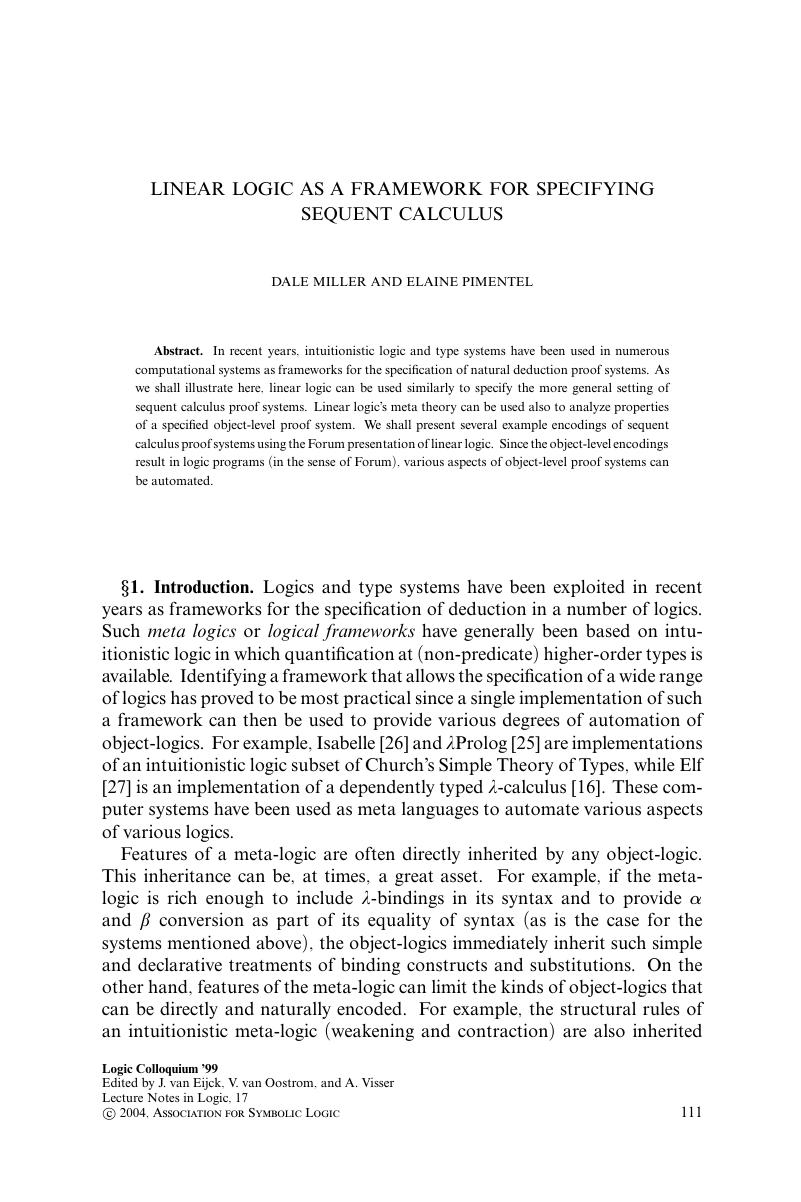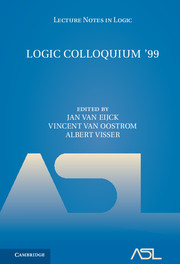Book contents
- Frontmatter
- Preface
- Contents
- SURVEY ARTICLES
- RESEARCH ARTICLES
- The intuitionistic arithmetical hierarchy
- On solvable groups and rings definable in o-minimal structures
- Logical topologies and semantic completeness
- Valued fields and elimination of imaginaries
- Simple sets and ideals under m-reducibility
- Borel irreducibility between two large families of Borel equivalence relations
- Linear logic as a framework for specifying sequent calculus
- Kripke models of certain subtheories of Heyting Arithmetic
- From bounded structural rules to linear logic modalities
- A description of the non-sequential execution of Petri nets in partially commutative linear logic
- A very slow growing hierarchy for
- References
Linear logic as a framework for specifying sequent calculus
from RESEARCH ARTICLES
Published online by Cambridge University Press: 30 March 2017
- Frontmatter
- Preface
- Contents
- SURVEY ARTICLES
- RESEARCH ARTICLES
- The intuitionistic arithmetical hierarchy
- On solvable groups and rings definable in o-minimal structures
- Logical topologies and semantic completeness
- Valued fields and elimination of imaginaries
- Simple sets and ideals under m-reducibility
- Borel irreducibility between two large families of Borel equivalence relations
- Linear logic as a framework for specifying sequent calculus
- Kripke models of certain subtheories of Heyting Arithmetic
- From bounded structural rules to linear logic modalities
- A description of the non-sequential execution of Petri nets in partially commutative linear logic
- A very slow growing hierarchy for
- References
Summary

Information
- Type
- Chapter
- Information
- Logic Colloquium '99 , pp. 111 - 135Publisher: Cambridge University PressPrint publication year: 2004
References
Accessibility standard: Unknown
Why this information is here
This section outlines the accessibility features of this content - including support for screen readers, full keyboard navigation and high-contrast display options. This may not be relevant for you.Accessibility Information
- 2
- Cited by
